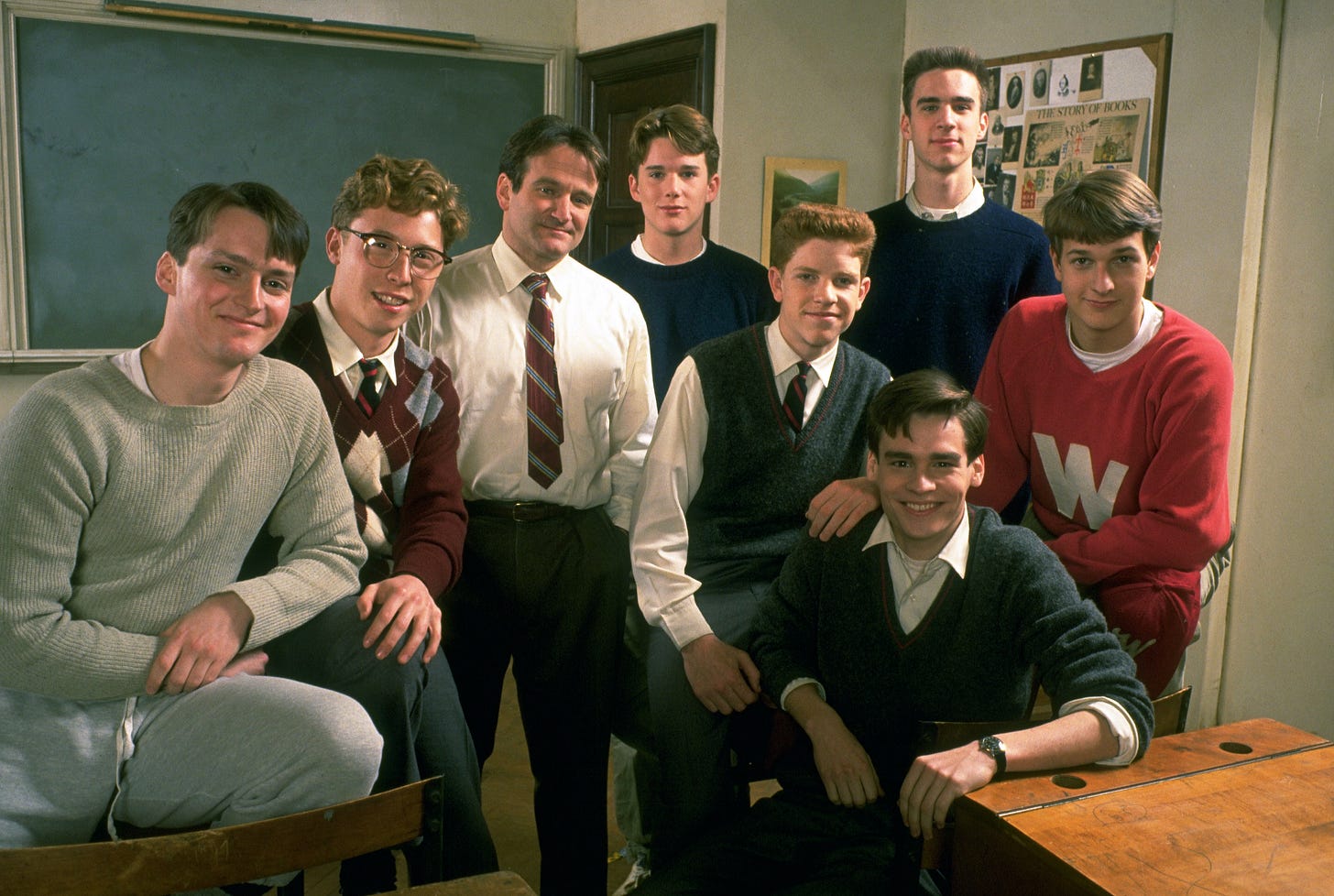Growing in the Wrong Direction
How you can build a purpose driven life
"Medicine, law, business, engineering, these are all noble pursuits, and necessary to sustain life. But poetry, beauty, romance, love, these are what we stay alive for."
― Dead Poets Society
The quote by Robin Williams came to mind as I watched the launch party of Tesla's Optimus robots last week.
They danced, made conversation with people, and demonstrated how far we've come in replicating human behaviors. Yet this display of technological advancement left me wondering if we're moving in the right direction.
I'm one of the people who hopped on the chatGPT train early. I’ve loved robots since I was a child. Transformers, Terminators and Gundam are the first that come to mind when I hear the word robots.
So when talking to an AI which is the first step to sentient robots became possible, I was bloody excited. I spent time every day talking to chatGPT until my limit expired. I probed responses, testing its handling of logical fallacies. For the most part, it had entertaining responses... until the morality police came and censored AI models telling us what we can and cannot ask. With the excuse of preventing racism and stereotypes.
But if AI is programmed to only tell the truth… and we’re hindering its ability. Are we teaching AI to lie?
That morality of that is a little too big for me today.
So I’m choosing to focus on this instead - which I'm certain has already been discussed often enough – is the idea that AI and robots are coming for our jobs.
Remember Uber? Taxi drivers lost their monopoly in tourist infested countries. You didn’t have to worry about being slapped with exorbitant charges anymore and exploited by drivers looking to make a quick buck over unsuspecting tourists.
In my city, there was something close to riots, protests, even physical violence against Uber drivers in an attempt to stop them from working and picking customers up.
The cycle is the same with AI. Some embraced it early, touting it as the biggest game changer in their industry. Others demonized it, claiming it would lead to the death of whatever industry they were in.
The smart ones leveraged it to grow their businesses. Those that couldn't were left behind.
One particular field almost all business owners turned to AI for is writing. Copy, articles, thought leadership pieces, emails, press releases. If it had words, they tried doing it with AI.
Why wouldn’t they right?
AI could churn out thousands of words in minutes, reducing blog writing from days to hours (including editing and posting). Thanks to that, content writers found themselves pushed out of the industry in favor of the cheaper and much faster AI.
But is it really a trade up?
I think of AI as the parrot in the pet store. It can repeat learned words back at you with scary accuracy, but it can't do anything beyond what it is taught. If you play with it enough, you'll easily recognize the signs of an AI-written article.
The formulaic transitions, the generic insights, the lack of genuine human experience – they all betray its artificial origin.
AI is a great tool. I love it. It helps me find synonyms, rephrase sentences, and even helps me consider different angles for a piece I'm writing that I may have missed. But the problem arises when people turn to AI to make up for a lack of creativity whether it’s in art or writing.
Why?
Because while I’m a man of science first and foremost. I have a soft spot for art. The most powerful kind of art draws from our deepest emotions. When the artist pours their own sufferings and experiences into their work. Great poets only write about emotions they can understand. Whether it’s love, grief or joy. They write poetry because there is no other logical way to express their emotions.
But when AI attempts to replace the creative process – the thinkers, the dreamers, the artists – as a replacement for real experiences and emotions, all things that an AI cannot comprehend, it'll end in failure.
Science and technology have brought us a long, long way, and by the looks of it, we have much further to go. Yet our obsession with creating robot partners that can replace real-life human connection is just another sign of AI growing in the wrong direction.
Instead, what we have today is AI becoming an all-consuming monster, devouring everything in sight. Motivated by greed, we find ways to use AI to cut costs and drive up profits. Slowly but surely destroying the soul of art.
Instead of being the force that propels us towards finding our soul, freeing us from menial, laborious tasks and moving us towards a society that rediscovers its humanity, AI is now being used as a tool to push us closer and closer to a dystopian future. One where we might end up serving our Skynet Overlords as battery sources to power their indestructible exoskeletons.
Well, if we’re only using AI in the pursuit of profit, maybe we truly deserve our dystopian fate. But for the dreamers, the creatives, those that yearn for a life that is truly their own in the words of Robin Williams…
“…poetry, beauty, romance, love, these are what we stay alive for.”


